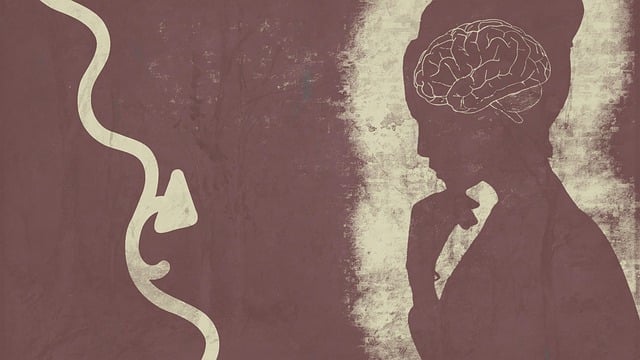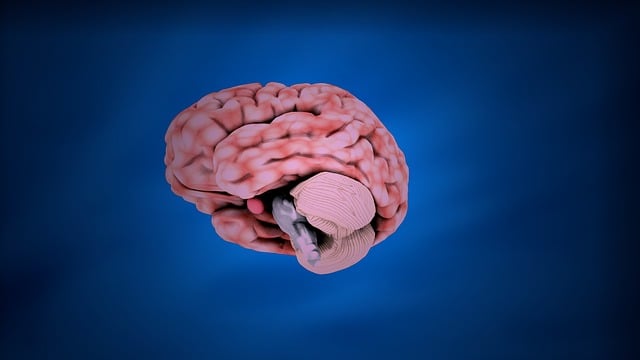Arvada Play Therapy approaches mental healthcare holistically, combining play-based techniques with mindfulness meditation to bridge cultural gaps. By addressing unconscious biases and promoting understanding of diverse cultures, it enhances patient outcomes, prevents burnout among providers, and creates a safer, more inclusive environment. Effective communication strategies, backed by training and ongoing support, empower healthcare professionals to deliver personalized care that respects and empowers patients from various backgrounds, making Arvada Play Therapy a leading model for culturally sensitive mental health practices.
“Cultural competency in healthcare is vital for providing inclusive, effective treatment. This article explores a comprehensive training program inspired by the Arvada Play Therapy Approach, offering practical strategies for professionals. We delve into identifying unconscious biases and stereotypes that impact patient care, with a focus on diverse communication techniques. Additionally, it highlights innovative training methods and ongoing support systems to bridge cultural gaps, ensuring healthcare providers can offer empathetic, culturally sensitive services.”
- Understanding Cultural Competency in Healthcare: The Arvada Play Therapy Approach
- Identifying Barriers and Biases: Unconscious Stereotypes and Their Impact
- Effective Communication Strategies for Diverse Patient Populations
- Building Cultural Bridges: Practical Training Methods and Ongoing Support
Understanding Cultural Competency in Healthcare: The Arvada Play Therapy Approach

Cultural competency in healthcare is a critical aspect that ensures every patient receives quality care tailored to their unique cultural background. It involves understanding and appreciating diverse beliefs, values, and practices, enabling healthcare providers to build stronger connections with their patients. The Arvada Play Therapy Approach stands as a compelling method within this realm. Drawing from the power of play, this approach facilitates open communication and fosters an environment where patients feel safe to express themselves freely, bridging cultural gaps.
Incorporating mindfulness meditation techniques into the therapy process has been particularly effective. By promoting relaxation and present-moment awareness, these practices aid in managing anxiety relief, which is a significant benefit for both patients and therapists. Moreover, mindfulness supports burnout prevention, enabling healthcare professionals to maintain resilience while offering compassionate care. The Arvada Play Therapy Approach, with its emphasis on cultural understanding and holistic healing techniques like mindfulness meditation, offers a promising path toward enhancing patient outcomes and creating more inclusive healthcare settings.
Identifying Barriers and Biases: Unconscious Stereotypes and Their Impact

Unconscious stereotypes and biases can significantly impact healthcare delivery, especially in diverse communities like Arvada. These hidden barriers often stem from cultural misunderstandings or misconceptions that influence how patients are perceived and treated. For instance, a mental health professional with unconscious biases might approach a patient from a different cultural background with assumptions based on stereotypes, leading to misaligned treatment plans. This can not only hinder the patient’s progress but also foster a sense of distrust between the healthcare provider and the individual seeking therapy, such as play therapy in Arvada.
Addressing these issues is crucial for enhancing Cultural Sensitivity in Mental Healthcare Practice. By recognizing and understanding the Mind Over Matter principles that guide different cultures, therapists can adapt their approaches. This involves actively listening to patients’ narratives, being open to learning about diverse cultural practices, and incorporating the patient’s perspective into therapy sessions. Such efforts not only facilitate better Anxiety Relief but also create a safer and more inclusive environment for all individuals seeking mental health services in Arvada play therapy settings.
Effective Communication Strategies for Diverse Patient Populations

Effective communication is a cornerstone of quality healthcare, especially when serving diverse patient populations in Arvada Play Therapy and beyond. Healthcare providers must adapt their strategies to bridge cultural gaps, ensuring every patient receives compassionate and competent care. This involves learning about different cultural backgrounds, values, and communication styles to foster open dialogue and build trust. For example, understanding non-verbal cues and body language can be crucial when working with patients from diverse ethnic groups.
In the realm of mental health education programs design, incorporating strategies that address burnout prevention for healthcare providers is essential. By promoting cultural competency, these programs can reduce misunderstandings and improve patient outcomes. Additionally, developing public awareness campaigns about diverse mental health issues can encourage early interventions and better support systems. Effective communication breaks down barriers, ensuring patients feel heard, respected, and empowered to take charge of their well-being.
Building Cultural Bridges: Practical Training Methods and Ongoing Support

In the pursuit of delivering exceptional patient care, healthcare providers must navigate diverse cultural landscapes. Cultural competency training is not just a nice-to-have; it’s an essential bridge to connecting with patients from various backgrounds. Practical methods in training should focus on interactive workshops, role-playing scenarios, and case studies that mimic real-world interactions. These activities foster understanding of cultural nuances, promote empathy, and enhance communication skills. For instance, Arvada Play Therapy offers unique approaches for engaging both children and their families, bridging gaps in healthcare delivery.
Ongoing support is equally vital to sustain cultural competency. Regular refresher courses, peer mentoring programs, and access to diverse patient narratives can keep providers sharp. Incorporating Social Skills Training and Mood Management techniques within these sessions ensures healthcare professionals are equipped to handle cross-cultural challenges effectively. Moreover, Burnout Prevention Strategies for Healthcare Providers should be integral parts of this ongoing education, as cultural sensitivity demands sustained energy and commitment.
Healthcare provider cultural competency training, as exemplified by the Arvada Play Therapy Approach, is a vital tool for fostering effective communication and building bridges with diverse patient populations. By identifying and addressing unconscious biases, learning practical communication strategies, and implementing ongoing support systems, healthcare professionals can enhance their ability to provide inclusive and culturally sensitive care. This not only improves patient outcomes but also strengthens the therapeutic relationship, making healthcare services more accessible and welcoming to all.














